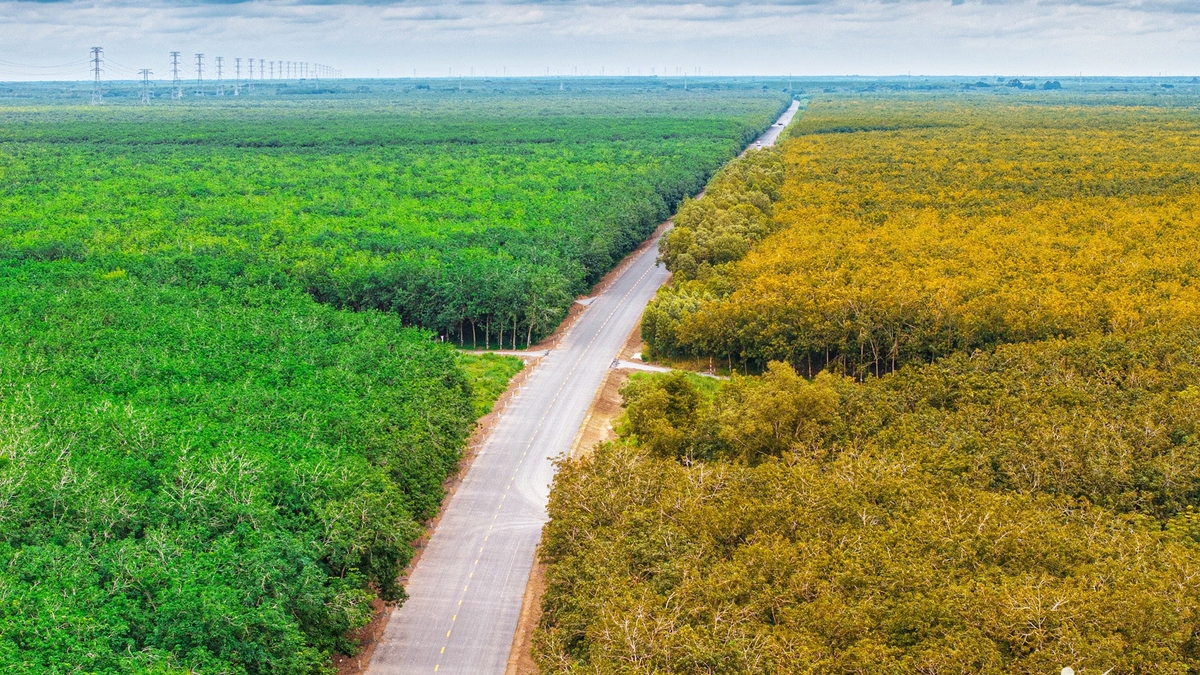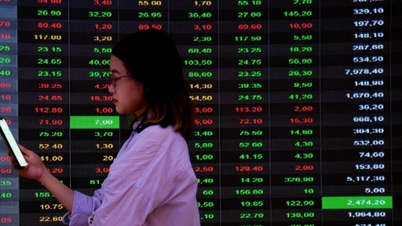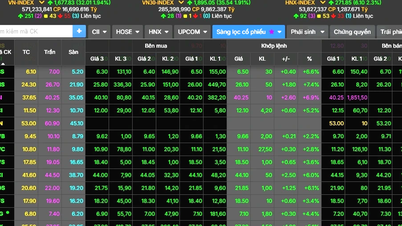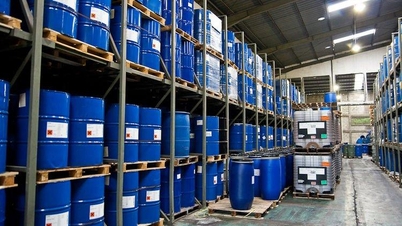World coffee prices weakened in the closing session last week, losing all the accumulation of previous sessions.
Coffee prices plummeted after the pressure of increased lending interest rates from central banks raising interest rates to new highs. In particular, the interbank interest rates for futures contracts were too high, causing funds and speculators to accelerate liquidation and withdraw capital from the coffee derivatives markets due to unattractive profit levels, to switch to other commodities with more attractive profit levels.
Meanwhile, new-crop coffee selling pressure from top producers is intensifying as Brazil's local currency is likely to hit a new high against the USD.
Overall, the price of robusta coffee had 3 sessions of increase and 2 sessions of decrease, with slight decreases. The price of coffee futures for September delivery decreased by 14 USD, or 0.54%, to 2,588 USD/ton. Trading volume was above average.
Arabica coffee prices on the New York floor had 2 sessions of increase and 3 sessions of decrease, the decrease was quite significant. Coffee futures for September delivery decreased by 3.95 cents, or 2.44%, to 157.90 cents/lb. Trading volume remained quite high above average.
 |
| Domestic coffee prices fell sharply by VND1,500/kg in some key purchasing localities in the trading session this weekend (July 29). (Source: doanhnhan.biz) |
At the end of this week's trading session (July 28), robusta coffee prices on the ICE Futures Europe London exchange turned sharply down. Robusta coffee futures for September 2023 delivery fell by 85 USD, trading at 2,588 USD/ton. November delivery futures fell by 62 USD, trading at 2,437 USD/ton. Average trading volume was high.
Arabica coffee prices on the ICE Futures US New York exchange, September 2023 delivery period decreased by 3.55 cents, trading at 157.9 cents/lb. Meanwhile, December 2023 delivery period decreased by 3.5 cents, trading at 158.2 cents/lb. Trading volume is high on average.
Robusta coffee inventories certified and monitored by the London Exchange, as of July 28, decreased by another 1,310 tons, or 2.46%, compared to the previous week, to 52,050 tons (about 867,500 bags, 60 kg bags), continuing to stand at the lowest level since 2016.
Domestic coffee prices dropped sharply by VND1,500/kg in some key purchasing localities in this weekend's trading session (July 29).
Unit: VND/kg. (Source: Giacaphe.com) |
Last week's highlights were economic reports from the US and many countries with large economies that had positive and optimistic developments, with signs of improvement in inflation, which was the basis for many central banks to adjust new monetary interest rates.
Earlier this week, the US Federal Reserve (Fed) and the European Central Bank announced interest rate hikes as expected. The ECB also hinted at a possible pause in September as inflationary pressures showed signs of easing amid growing recession concerns.
The Fed has left the door open for further rate hikes, although Fed Chairman Jerome Powell has hinted at a September meeting. Changes in monetary policy have had a strong impact on coffee prices this week. Meanwhile, supply and demand are not expected to have much impact on the two exchanges at this stage. Robusta coffee prices remain concerned about supply and low inventories in the medium and short term.
The phenomenon of falling coffee prices despite a shortage of goods, while new crop selling pressure, erratic fluctuations in the USDX index, and rising interest rates have prompted funds and speculators to shift capital flows to markets with higher immediate returns, is expected to continue.
Market developments affect the market outlook this week. According to experts' forecasts, prices on both exchanges will continue to fluctuate, going up and down in extreme ways according to the adjustment of the USD exchange rate.
Source






































![[Photo] Opening of the 13th Conference of the 13th Party Central Committee](https://vphoto.vietnam.vn/thumb/1200x675/vietnam/resource/IMAGE/2025/10/6/d4b269e6c4b64696af775925cb608560)





































































Comment (0)